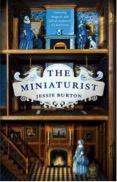Over the last couple of weeks I have been reading A Woman’s Qigong Guide by Yanling Lee Johnson. As I’ve been learning more about Chinese culture – from kung fu to mandarin lessons – I decided to read and learn more about Qi (or Chi). I found it interesting that the initial books I read about Qi assumed I was a male reader, and the diagrams shown were male bodies rather than female. I asked my teacher her advice, and she sent me to Yanling Lee Johnson’s book A Woman’s Qigong Guide. It is such a refreshing and valuable guide (and it is so comforting to open a page and see a diagram of human anatomy I can biologically relate to).
Although I am still building my knowledge of Qi, I can say that it is a form of energy that everything has and, within us, it flows alongside our blood. Through cultivating Qi, human beings can lengthen their life-spans and find a sense of balance in their bodies and minds. I have been trying some short forms of meditation in the morning and breathing exercises whilst I walk, to get started. Lee Johnson’s book is wonderful because it is so personal; she explores how Qi has helped her during her life (through China’s cultural revolution – it is an astounding story), and writes in a way that is informative and accessible. (I had tried some textbooks which were pretty full-on for a first-timer!) I love the way in which Lee Johnson breaks down each element of Qi – starting with history, then moving through to cultivation of Qi, and Qi as a Way of Life. She uses poetry to highlight key ideas, and to offer an insight into the philosophies that coincide with using Qi. It really flows through every aspect of life.
It was a life-changing moment for me when I read:
‘The primary focus of western healthcare is to take care of an individual after he or she has become ill. In the Chinese culture, prevention of illness is more actively stressed as the first priority.’
It seems ridiculous that prevention of illness isn’t the philosophy we grow up with in the UK. Why are we waiting to get ill and then doing something about it? It seems nonsensical. I have been thinking about this more and more whilst learning about food, too: we can prevent ageing and metabolic diseases through avoiding sugars and carbohydrates (which are also sugars), so why don’t we? Studies have shown that Alzheimer’s and Dementia could be the ‘third diabetes’, so why are we still eating “foods” that kill us?
I believe that by combining Qi with knowledge about how food truly affects our bodies, we can live strong lives.
It is amazing when parts of our lives – that initially feel disparate – are brought together, and open our eyes to a bigger picture. A Woman’s Qigong Guide has done this for me: threading my acts of living, together. I am excited to continue my Qigong education.




